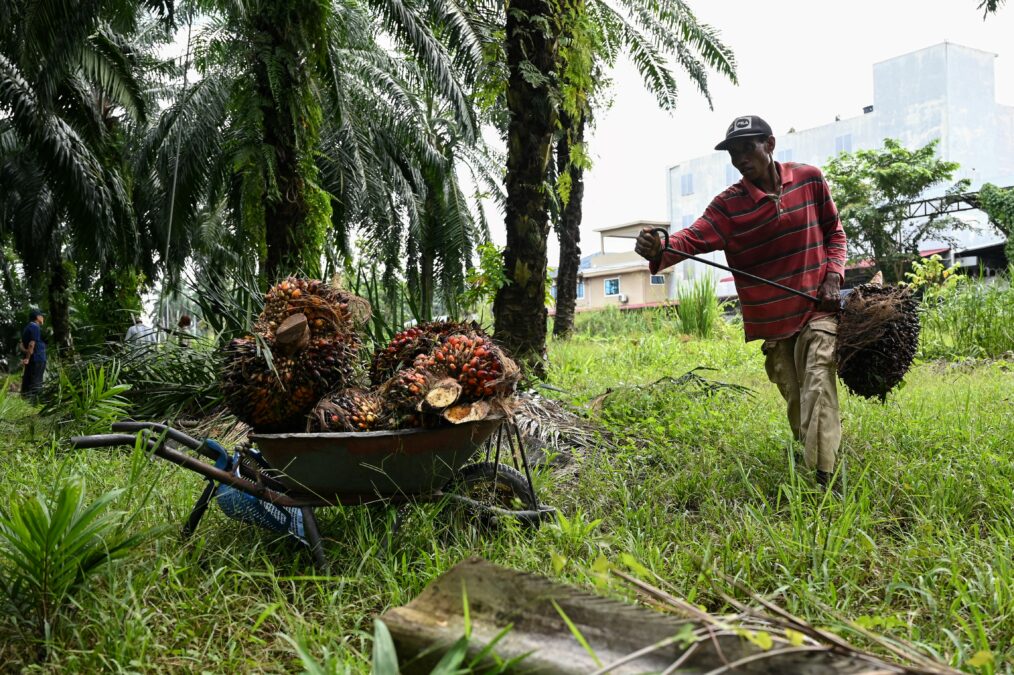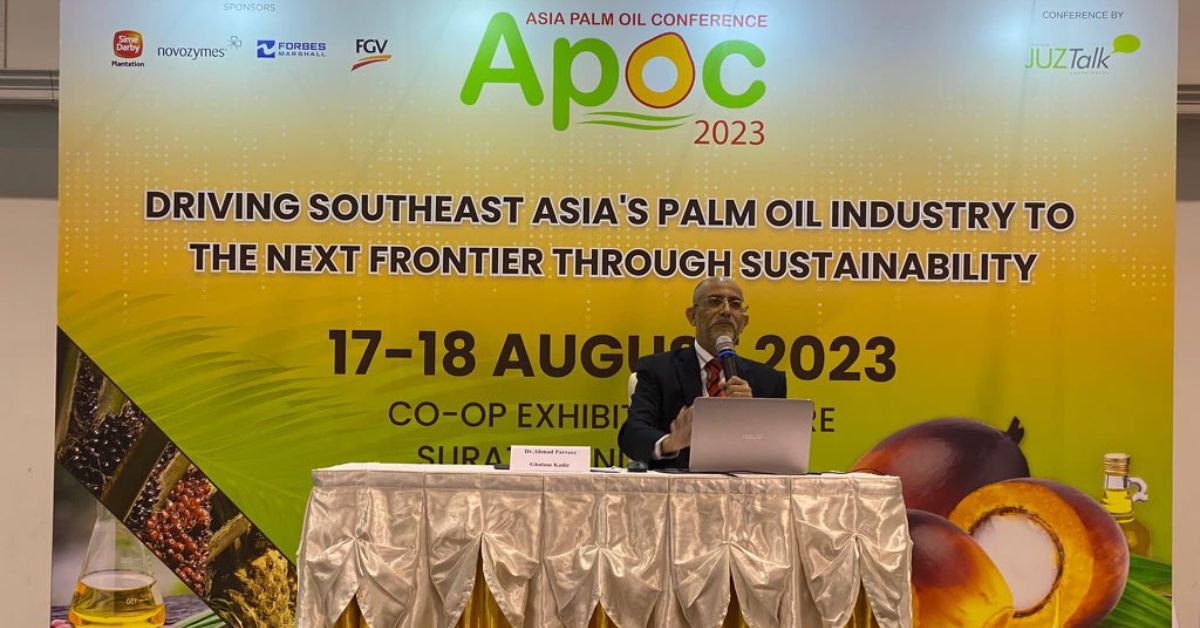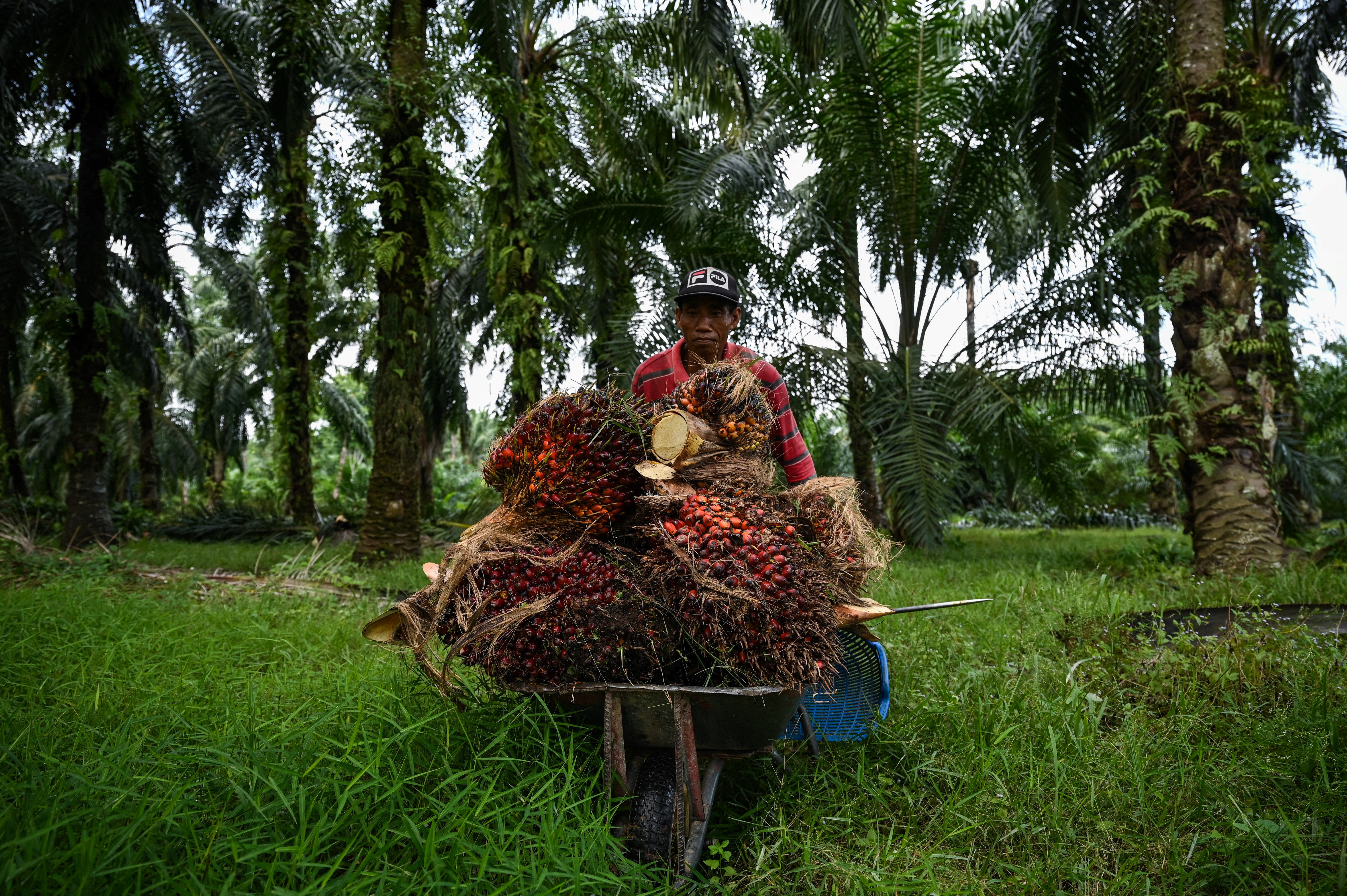NEW DELHI — As countries in the Middle East rise economically and their populations grow, Malaysia sees a bigger role for itself in fulfilling the region’s requirement for edible oil and fats. Enticing prospects exist for partnerships in the palm oil sector between Malaysian and Middle Eastern companies, with common halal food standards underpinning their trade linkages.
As the world’s second-largest producer and exporter of palm oil, Malaysia is already a major supplier of edible oil to the region. Middle East and North African countries imported 2.34 million tons of Malaysian palm oil in 2021, with Turkiye, Iran, Saudi Arabia, and the United Arab Emirates accounting for 84 per cent of the total Malaysian palm oil exports to the region, according to the Malaysian Palm Oil Council (MPOC).
Of particular importance is the Horeca (hotels, restaurants, and catering) sector, which is well developed in Malaysia as well as in major Middle Eastern countries that are leading tourist destinations.
“Saudi Arabia is an important growing market for us. We have good relations with industry players there. Our common halal standards create immense potential for collaboration,” Malaysian Palm Oil Board (PMOB) director-general Ahmad Parveez Ghulam Kadir said in an interview in New Delhi.

Saudi Arabia’s palm oil imports in 2022 jumped 31 per cent to 758,000 tons, while its overall edible oil imports crossed one million tons. Malaysian palm oil imports to the kingdom were 511,754 tons during the year.
Turkiye, due to its huge food processing sector, is the top importer of palm oil from Malaysia, with shipments totaling 824,771 tons last year.
“We have a strong rapport with Turkiye. There is a huge potential for collaboration with them to expand our export markets,” the PMOB director-general said.
He said opportunities also exist in developing value-added products and technological collaboration to “maximize the use of palm oil” in a range of food and non-food products.
Palm oil is the world’s most consumed edible oil and is used in cooking, baking, frying, as well as in cosmetics.
Iran has remained a solid palm oil buyer from Malaysia for a long time, and the commodity is a key component of bilateral trade exchange. In 2022, Iran imported about 460,000 tons of palm oil from Malaysia.
News in Numbers * Middle East and North African countries imported 2.34 million tons of Malaysian palm oil in 2021. * Turkiye, Iran, Saudi Arabia, and the United Arab Emirates accounted for 84% of the total Malaysian palm oil exports to the region in 2021. * Saudi Arabia's palm oil imports in 2022 jumped 31% to 758,000 tons, with Malaysian palm oil imports to the kingdom totaling 511,754 tons. * Turkiye, with its huge food processing sector, imported 824,771 tons of palm oil from Malaysia in 2022. * Iran imported about 460,000 tons of palm oil from Malaysia in 2022. * Malaysia exported 65,647 tons of palm oil to Algeria in 2021, according to the MPOC. * In January 2022, Malaysia set up the Commodity Integrated Marketing Company (CIMC) in Jeddah to promote palm oil, timber, and rubber exports. * Top producers Indonesia and Malaysia, who account for about 85% of world palm oil trade, have joined hands to counter unfair trade pressure.
The Gulf region can also serve as a re-export hub for Malaysian palm oil as big importers enjoy the benefit of lower freight costs through large shipments, which can then be distributed to the markets well connected to Arab ports.
Gulf countries on their own have a thriving Horeca sector in which palm oil is widely used.
Saudi Arabia’s economic transformation and its expanding tourism and food sectors are further expected to solidify its agriculture trade with Malaysia.
The UAE, owing to its regional trading hub role and strong Horeca and tourism sectors, also remains a key destination for Malaysian palm oil.
Algeria, though not a large palm oil buyer, is witnessing significant growth in key food segments such as confectionery and snacks, which is expected to fuel demand for palm oil. Palm oil’s further growth prospects lie in the margarine, biscuits, cheese, and vegetable ghee segments. Malaysia exported 65,647 tons of palm oil to Algeria in 2021, according to the MPOC.
Building regional re-exports hubs
The idea of building strategic palm oil export hubs in the Gulf region, Africa, and Central Asia has also been mooted in recent months.
In January 2022, Malaysia set up the Commodity Integrated Marketing Company (CIMC) to serve as its regional office in Jeddah for promoting palm oil, timber, and rubber exports.
Saudi Arabia is an important growing market for us. We have good relations with industry players there. Our common halal standards create immense potential for collaboration.
Malaysian Palm Oil Board director-general Ahmad Parveez Ghulam Kadir
Egypt and Saudi Arabia have shown interest in developing palm oil storage and trading hubs in collaboration with Malaysia.
Such hubs can help Malaysia in tapping new markets in the face of regulatory pressure on palm oil from the European Union (EU).
There are negative anti-palm oil campaigns and legislation that unjustly target or victimize palm oil, Malaysian Deputy Prime Minister Fadillah Yusof, who is also minister of commodities and plantation industries, said recently.
“As such, these hurdles require diligent attention and strategic planning to overcome, towards ensuring a fair and level playing field for our industry,” he said in a speech at the Malaysian Palm Oil Forum 2023 East Africa in Kenya’s capital Nairobi in July.
Top producers Indonesia and Malaysia, who account for about 85 per cent of world palm oil trade, have joined hands to counter any unfair trade pressure.
The two major economies of Southeast Asia are upset with the EU over what they view as discriminatory trade measures and assert that the European campaign has failed to take into account abundant scientific data on palm oil’s sustainable cultivation, health benefits, and versatility of use.
One is the EU Deforestation Regulation (EUDR), which seeks to restrict palm oil as well as some other agricultural commodities into the European bloc if they are not produced on deforestation-free land starting 2021. Then there is the EU’s renewable energy directive (RED) that aims to phase out the use of palm oil for biofuel within the bloc starting in 2030.
When Malaysian Prime Minister Anwar Ibrahim and Indonesian President Joko Widodo held a bilateral meeting recently, they agreed on cooperation against the EU measure.
“Both leaders undertook to cooperate closely to address highly detrimental discriminatory measures against palm oil by the European Union (EU) through the introduction of the European Union Deforestation Regulation (EUDR). They underlined that the EU needs to promptly address such discriminatory measures and work towards a fair and equitable resolution,” according to a joint statement on June 8.
It is expected that Malaysia’s engagement with palm oil markets around the world will expand to include a range of activities.

There was ample indication of this in the deputy prime minister’s speech at the industry forum in Kenya.
“There are numerous untapped opportunities in downstream higher value-added palm derivatives, including oleochemicals, pharmaceuticals, processed foods, specialty products, and consumer brands. I urge all participants to leverage on this event to interact and explore potential joint investments that will contribute to the growth and success of their businesses,” he said.
Middle Eastern investors should be proactive in exploring partnerships with Malaysia in various palm oil industry areas, going beyond trading to include refining, waste recycling, and product and technology research.
Palm oil, due to its affordability and easy availability, is going to assume greater significance in world food security amid global inflationary trends and geopolitical tensions.
To sum it up, Malaysia’s palm oil industry has a significant role to play in the Middle East’s growing demand for edible oils and fats. The common halal food standards between the two regions provide a strong foundation for trade linkages.
The potential for collaboration extends beyond trading to include refining, waste recycling, and product and technology research. As the world grapples with inflationary pressures and geopolitical tensions, palm oil’s affordability and easy availability make it an essential commodity for global food security.








